Scottish airports seek to counter drone threat
- Published
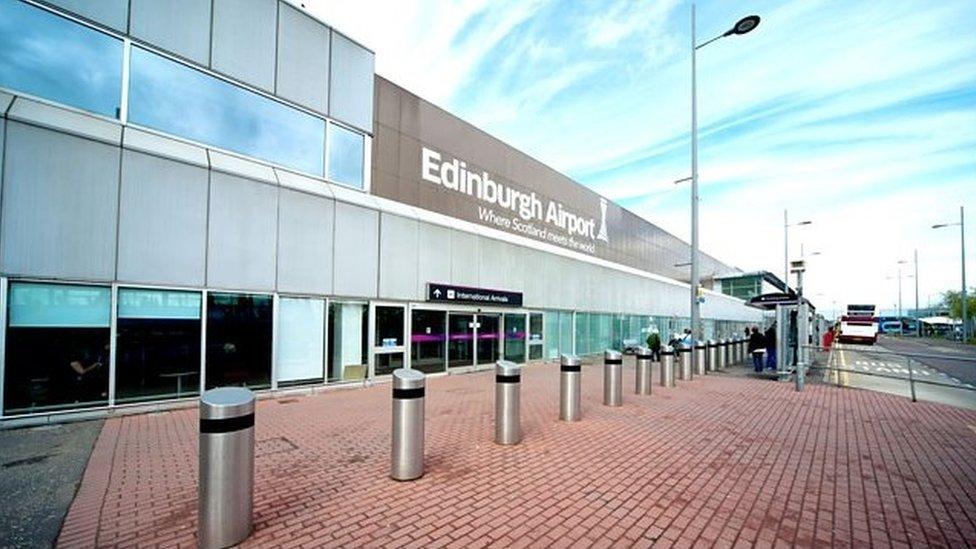
Edinburgh Airport said it planned to strengthen security measures "in light of the Gatwick incident"
Edinburgh Airport has said it plans to strengthen measures designed to tackle the threat posed by drones.
It comes after drone sightings forced Gatwick Airport to close causing major disruption in the run up to Christmas.
About 1,000 flights were cancelled over three days.
Police patrols have been stepped up around the perimeters of Scottish airports in response and other measures, such as extending no-fly zones, are being considered.
More than 140,000 passengers at Gatwick were affected during 36 hours of chaos between 19 and 21 December.
The forced closure of the UK's second biggest airport has prompted the drone threat to be reassessed.
Gatwick and Heathrow have said they now plan to spend millions of pounds on anti-drone technology.
The equipment, which can detect and jam communications between a drone and its operator, was deployed by the RAF on a roof at Gatwick last month.
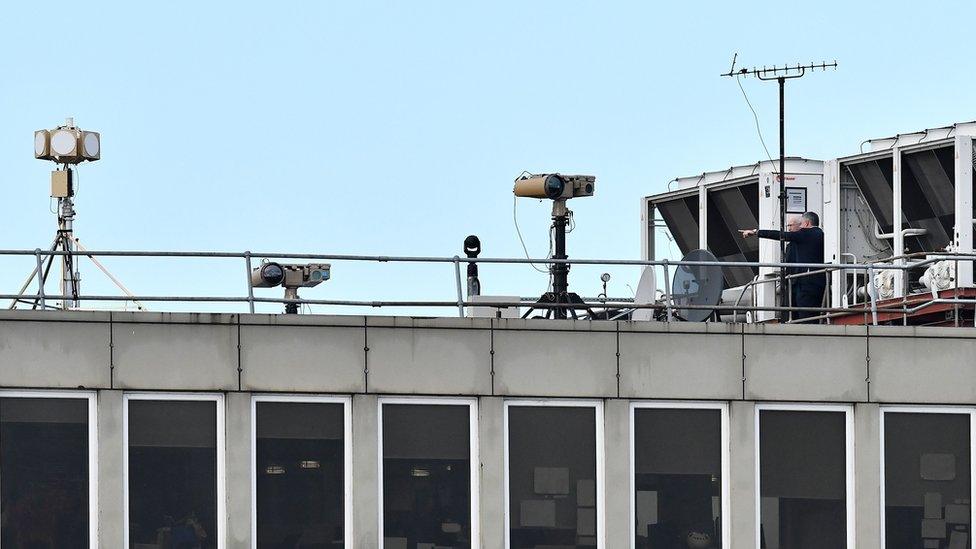
Anti-drone equipment was deployed by the RAF at Gatwick until this week
Gatwick said it had spent £5m to prevent future attacks, and Heathrow confirmed it would be buying systems.
Scotland's busiest airport, Edinburgh, has said it is working to strengthen existing security measures.
A spokesman for Edinburgh Airport added: "We carry out regular patrols of our airfield and they play a part in the identification of any threats, including drones, and we have stepped up those patrols.
"We have other measures in place which we have reviewed and plan to strengthen in light of the Gatwick incident."
Airport bosses were reluctant to discuss details of security measures being put in place due to "operational reasons".
A spokesman for Glasgow Airport said: "Rest assured we work in close partnership with the UK government, the Civil Aviation Authority and Police Scotland to ensure our security processes are both appropriate and in line with current threat assessments.
"We remain vigilant as always, particularly in light of the recent drone incident at Gatwick Airport, and would remind people that the use of drones within close proximity to an airport is both extremely dangerous and a criminal offence."
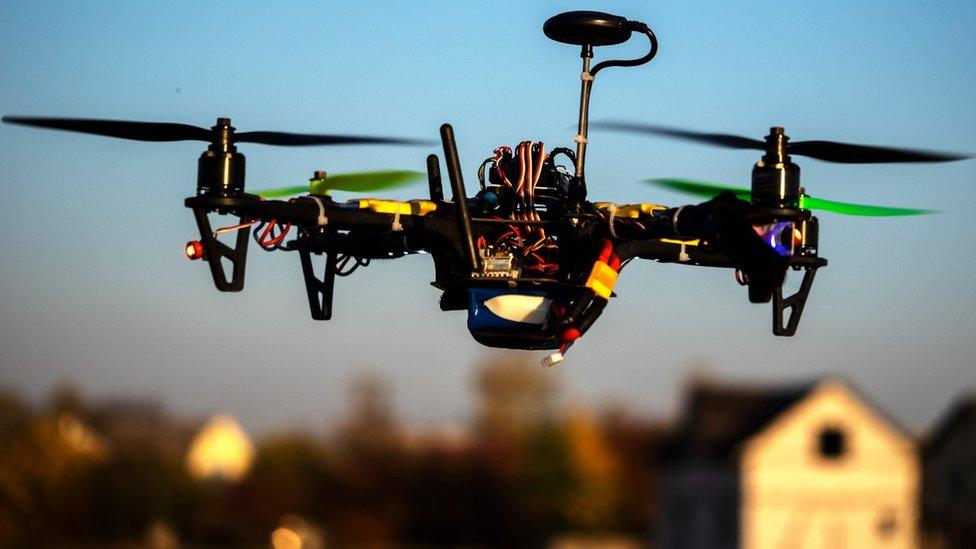
As drones become more popular, police, governments and airports are looking at how to regulate their use
Armed police patrols around airport perimeters have increased as a result of the events at Gatwick.
Police Scotland Assistant Chief Constable Mark Williams said: "Additional operational activities have been put in place such as increased patrols at our perimeters and local liaison with airport operators."
The Airport Operators Association (AOA) is also talking to police and government about what more can be done. Extending the current 1km no-fly zone is one option.
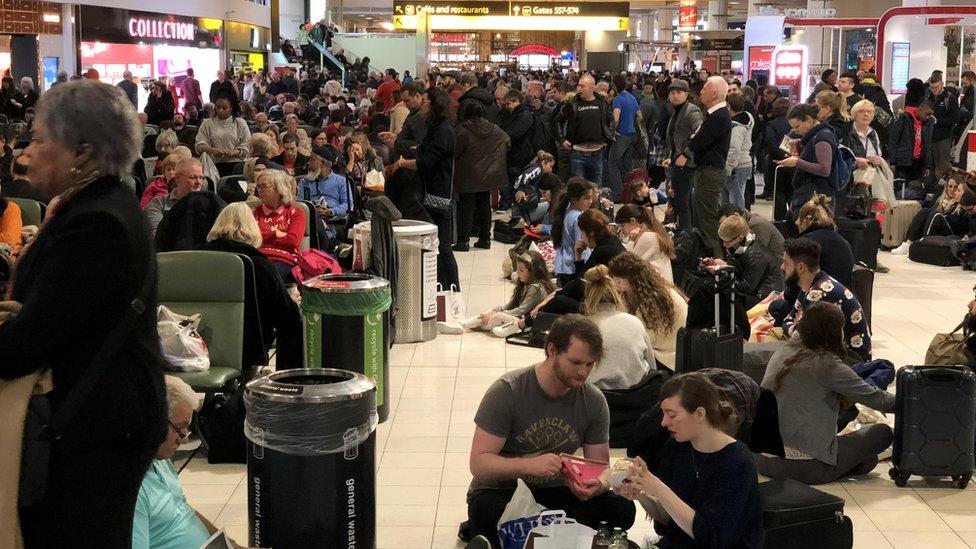
Thousands of passengers were disrupted by the drone incidents at Gatwick before Christmas
An AOA spokesman added: "Airports continuously review the measures they take to keep air traffic safe. In light of events at Gatwick Airport, airports are working together and with government and the police to see what lessons can be learnt.
"This includes looking at what technology is available as well as what additional measures the government and police can take, such as mandatory geo-fencing and extending the no-fly zone for drones around airports.
"Flying a drone within 1km of an airport or endangering aircraft is already a criminal offence with penalties of up to five years in prison. Airports and police work closely together to ensure offenders are brought to justice."
The Scottish government said legislation regarding the use and deployment of drones was reserved to Westminster.
A spokesman added: "We routinely work closely with the UK government on a wide range of security related issues."
- Published4 January 2019
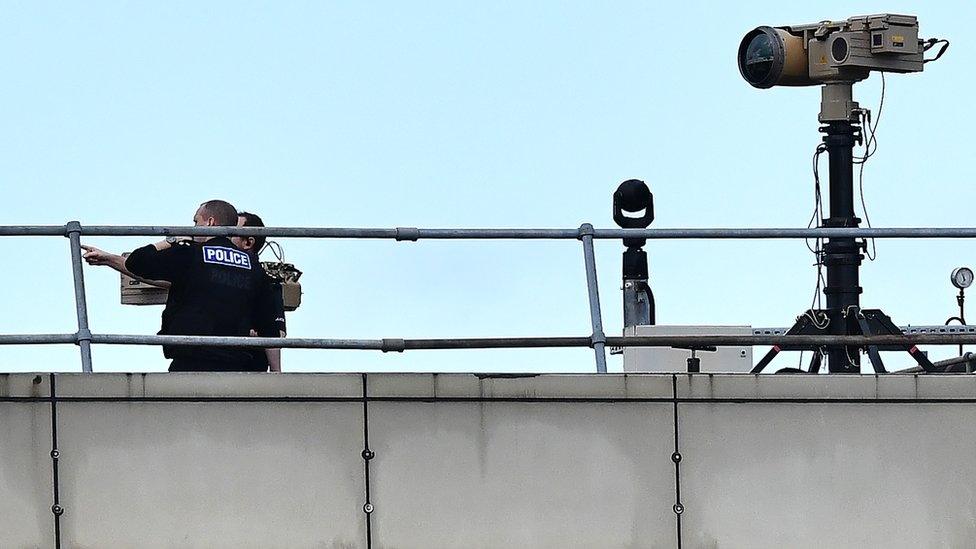
- Published21 December 2018
